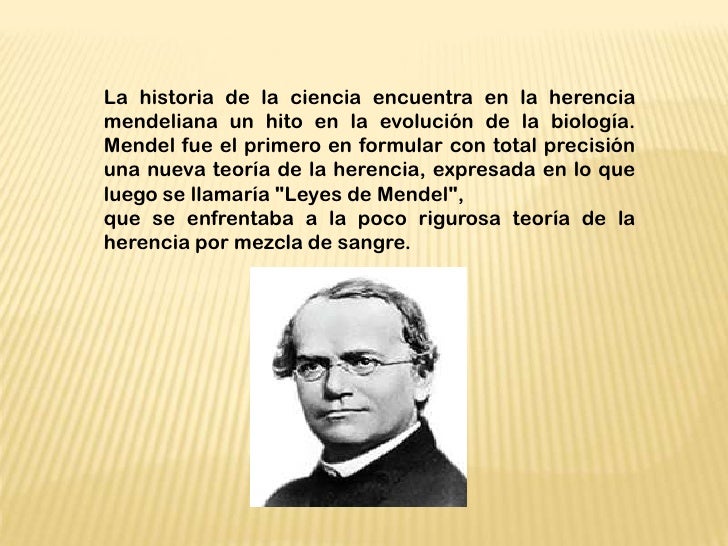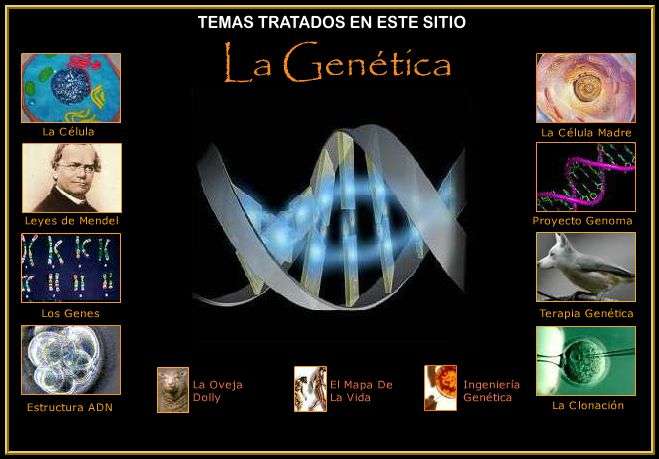
Upon entering the Abbey, Johann took the first name Gregor as a symbol. The focus of genetics research then shifted to understanding what really happens in the transmission of hereditary traits from parents to children. Gregor Mendel is most well known for his work with his pea plants in the. Su vida, experimentos y plantas de guisantes.
Si estás viendo este mensaje, significa que estamos teniendo problemas para cargar materiales externos en nuestro sitio. Gregor Johann Mendel was a scientist, Augustinian friar and abbot of St. Mendel was born in a German-speaking family in the Silesian part of the Austrian Empire and gained posthumous recognition as the founder of the modern science of genetics.
Os seus estudos o levaram a ser conhecido como o “pai da genética”. Ele foi batizado com o nome de Johann Mendel , mudando o nome para Gregor após ingressar para a ordem religiosa dos agostinianos. Identified recessive and dominant traits which pass from parents to offspring. Establishe momentously, that traits pass from parents to their offspring in a mathematically predictable way. Prior to Mendel, most people believed inheritance was due to a blending of parental ‘essences’, much like how mixing blue and yellow paint will produce a green color.
Hybrids: The blending of two things to make a new one is called a hybrid. Mendel made two innovations to the science of genetics : developed pure lines. His monumental achievements were not well known during his lifetime. He gained renown when his work was rediscovered decades after his death. It would be fair to say that Mendel had a lot of grit: he persevered through difficult circumstances to make some of the most important discoveries in biology.
But how do we know so much about genetics today? Hortensia Jiménez Díaz explains how studying pea plants revealed why you may have blue eyes. Las observaciones de Mendel se convirtieron en la base de la genética moderna y el estudio de la herencia, y es ampliamente considerado un pionero en el campo de la genética. His discoveries established the fundamentals of genetics that are understood in modern science.
Sus observaciones a partir de los experimentos que realizó en su jardín supusieron el comienzo de la genética moderna. Here, translated into English, GENETICS republishes the original Mendel article. Sus rigurosos experimentos sobre los fenómenos de la herencia en las plantas constituyen el punto de partida de la genética , una de las ramas fundamentales y emblemáticas de la biología moderna. Su padre era un veterano de las guerras napoleónicas, y su madre, la hija de un jardinero.
Genetics play a very important role in evolution, for if there were not genes, nothing would evolve. Por ende, también se le considera genetista. Su aportación principal fue la enunciación de las leyes de la genética , conocidas como “Leyes de la herencia de Mendel ”. In his monastery garden, Mendel carried out a large number of cross-pollination experiments between variants of the garden pea , which he obtained as pure-breeding lines.
He was a monk in Augustinian Abbey of St Thomas in Brno where he worked as a teacher. Gregor got recognition as the founder of modern science especially on genetics when he founded the basic principles behind genetics on his garden. He was an Augustinian friar of the Catholic church and a scientist.
He eventually became the abbot of St. He is also known as Father of Genetics. Descobriu as leis da genética , que mudaram o rumo da biologia. Filho de camponeses, observava e estudava as plantas.
In the middle of the th century, Mendel was a monk conducting many experiments now viewed as seminal with respect to our understanding of heredity: how characteristics of parents are passed on to children. In particular, Mendel had a model in mind where each of the parents had two genes, of which they each contributed one to the offspring plant. During his lifetime, his work was largely ignored by his fellow biologists.
Mendel discovered laws of inheritance that dictate how various traits pass down the generations in plants. For eight years, he cultivated and classified hybridized pea plants. Mendel concluded that traits are inherited and statistically predictable in the next generation. He actually described the two laws of genetics including segregation and independent assortment. The title is just fitting for one who founded the basic principles of heredity and variation in living organisms.
He did not know it during his lifetime, but he was destined to become one of the most influencial persons to the growth of biology. He founded genetics by his work cross-breeding pea plants. He discovered dominant and recessive characters from the crosses he performed on the plants in his greenhouse. Monks had a lot of time on there hands and Mendel spent his time crossing pea plants.
His contribution to science is in the field of heredity. Although DNA, chromosomes and genetics were unknown concepts at the time, Mendel’s experiments focused on the outward effects of the genetic programming (the phenotype). Concept Children resemble their parents.

His rigorous approach transformed agricultural breeding from an art to a science.